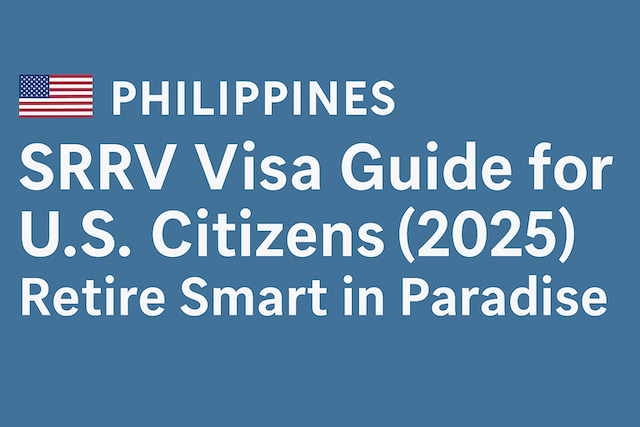How Studying English in the Philippines Boosts Your Fluency
Contents
- 1 How Studying English in the Philippines Boosts Your Fluency
- 2 Introduction
- 3 🧠 Reason 1: Affordable Yet High-Quality Education
- 4 🧠 Reason 2: 1-on-1 Classes for Personalized Learning
- 5 🧠 Reason 3: English-Only Environment
- 6 🧠 Reason 4: Cultural Immersion & Local Friendliness
- 7 🧠 Reason 5: Flexible Curriculum and Programs
- 8 📝 Conclusion: A Smart and Empowering Path to Fluency
How Studying English in the Philippines Boosts Your Fluency
Introduction
In recent years, the Philippines has emerged as one of the most popular destinations for learning English, attracting thousands of students from around the world—especially from countries across Asia, the Middle East, and Latin America. But what exactly makes the Philippines such an effective place to improve your English fluency?
The answer lies in a unique combination of factors: affordable tuition, intensive one-on-one classes, an English-speaking environment, and a warm, welcoming culture that encourages daily use of the language. Among all the study destinations in the Philippines, Cebu Island stands out for its rich mix of educational quality and tropical lifestyle, offering students both a serious academic experience and a chance to enjoy island life.
Unlike Western countries where English education often involves large classroom sizes and passive learning, language schools in the Philippines focus on personalized instruction. Most programs are structured around 1:1 lessons, allowing students to engage in real conversations and receive targeted feedback based on their level and goals. This accelerated approach not only improves grammar and vocabulary but also builds confidence in speaking—something that many learners struggle with.
Moreover, English is one of the official languages of the Philippines, used in education, business, and government. This means that students can easily apply what they learn in class to real-life situations outside the school, reinforcing their skills in a natural and practical way.
In this article, we’ll explore how studying English in the Philippines—especially in Cebu—can significantly boost your fluency, and why it might be the smartest decision for your language journey.
🧠 Reason 1: Affordable Yet High-Quality Education
One of the biggest advantages of studying English in the Philippines is the excellent cost-to-quality ratio. Compared to English-speaking countries like the United States, the UK, or Australia, tuition fees in the Philippines are significantly lower—sometimes up to 70–80% less—while still providing a high standard of education.
This affordability does not mean a compromise in quality. Many English schools in the Philippines are operated by experienced educators and follow internationally recognized curricula. Teachers are college-educated and trained in ESL (English as a Second Language) instruction, often with years of experience teaching foreign students from Korea, Japan, China, and beyond.
In addition to tuition, living costs in the Philippines are also very budget-friendly. Accommodation, meals, transportation, and even weekend excursions are all relatively inexpensive. Most schools offer package deals that include dormitory stays and daily meals, making it easier for students to plan their budgets with no hidden costs.
This combination of low cost and high quality makes English study in the Philippines accessible to a wider range of learners, including high school graduates, university students, working professionals, and even retirees who want to improve their communication skills without spending a fortune.
For learners who are serious about improving their fluency without breaking the bank, the Philippines offers one of the most compelling options available today.
🧠 Reason 2: 1-on-1 Classes for Personalized Learning
One of the most unique features of English education in the Philippines is the emphasis on one-on-one (1:1) classes. Unlike group classes where some students may dominate the conversation and others struggle to participate, 1:1 classes allow every student to speak, ask questions, and receive immediate feedback—without fear or hesitation.
This personalized learning style is especially beneficial for shy or beginner-level learners who may feel overwhelmed in group settings. In a private session, the teacher can adjust the pace, topics, and difficulty to match the student’s needs and goals. Whether you want to focus on grammar, pronunciation, or business English, the lessons can be fully customized.
Because the student is constantly engaged in active conversation, the amount of speaking practice in just one hour of 1:1 instruction often exceeds what you might get in an entire day of group learning in other countries. This intensive speaking exposure helps to build fluency and confidence quickly, especially for learners aiming to use English in real-life situations.
Many language schools in the Philippines offer up to 4–6 hours of one-on-one classes per day, in addition to small group sessions. This high level of individual attention is rarely available in Western institutions—and certainly not at the same affordable price.
In short, 1:1 classes are the core engine behind the rapid improvement many students experience during their stay in the Philippines.
🧠 Reason 3: English-Only Environment
Another major benefit of studying in the Philippines is the natural English-speaking environment both inside and outside the classroom. Unlike some study destinations where English is only used during lessons, many Philippine language schools adopt an “English Only Policy” (EOP), requiring students to speak English at all times within the campus.
This immersion-style environment forces students to think, respond, and interact in English constantly, which accelerates the learning process. It also helps to eliminate the bad habit of “mental translation,” allowing learners to develop the ability to speak and understand English directly and instinctively.
Outside the school, English remains highly useful. As one of the official languages of the Philippines, English is widely used in daily life—on signs, in restaurants, in shopping malls, and even in casual conversations with locals. This gives students countless chances to practice what they learn in real-world situations, whether they’re ordering food, asking for directions, or chatting with staff.
In addition, the friendly nature of Filipinos makes it easy for international students to feel comfortable trying out their English skills without fear of being judged or corrected harshly. This kind of positive atmosphere is key to building confidence.
By living in an English-rich environment 24/7, students are able to absorb the language naturally, turning passive knowledge into active fluency much faster than they would in their home country.
🧠 Reason 4: Cultural Immersion & Local Friendliness
Studying English in the Philippines isn’t just about language—it’s also a deep cultural experience. Immersing yourself in a new culture allows you to connect language with real-life context, making your learning richer, more memorable, and more enjoyable.
Filipino culture is a unique blend of Asian, Spanish, and American influences. This mix creates a familiar yet distinctive environment where students can comfortably adjust while experiencing new traditions, foods, festivals, and social customs. From sharing meals with locals to joining cultural activities and weekend trips, every moment becomes a learning opportunity.
What truly sets the Philippines apart, however, is the remarkable friendliness and hospitality of its people. Filipinos are known for being warm, patient, and eager to help. They enjoy meeting foreigners and often go out of their way to make students feel welcome. For English learners, this means there’s less pressure and more encouragement to speak, even when making mistakes.
Many students form close relationships not only with their teachers and classmates but also with dormitory staff, shopkeepers, tour guides, and local friends. These real-life interactions help bridge the gap between classroom English and practical communication.
Cultural immersion doesn’t just improve language skills—it deepens understanding, builds global awareness, and makes the learning journey unforgettable.
🧠 Reason 5: Flexible Curriculum and Programs
One of the most appealing aspects of studying English in the Philippines is the flexibility of its programs. Whether you’re a beginner who wants to master the basics or an advanced learner preparing for IELTS, TOEIC, or business presentations, there’s a course tailored just for you.
Language schools in the Philippines typically offer a wide range of curricula—from general conversation and pronunciation practice to academic English, test preparation, and professional communication. You can choose programs that last from as short as one week to several months, depending on your goals, schedule, and budget.
Classes are also highly adaptable. For example, if you feel that a particular area needs more focus—such as speaking fluency or writing skills—you can often request customized lesson plans or even switch teachers to better suit your learning style. Many schools provide weekly progress checks and consultations to help you stay on track and maximize your results.
Another strength is the option to study intensively. Some programs offer up to 8 hours of daily lessons, combining one-on-one, group, and self-study sessions. This high-intensity model allows for faster progress in a shorter time—ideal for students with limited availability or specific deadlines.
With such flexibility in scheduling, content, and delivery, the Philippine ESL system makes it easy to build a study plan that works for you, ensuring that every minute of your learning journey is both efficient and effective.
📝 Conclusion: A Smart and Empowering Path to Fluency
Choosing where to study English is one of the most important decisions a learner can make—and the Philippines offers a truly unique and powerful option. With its affordable tuition, personalized 1-on-1 classes, English-immersive environment, cultural richness, and flexible course structures, the Philippines has created a language learning ecosystem that is both effective and accessible.
Unlike traditional classroom environments where students may struggle to speak or stay engaged, English schools in the Philippines provide intensive, interactive, and supportive learning that fast-tracks fluency. You’re not just memorizing vocabulary or grammar rules—you’re speaking, thinking, and even dreaming in English every single day.
Living in a country where English is part of everyday life means your practice doesn’t stop when class ends. From chatting with locals to reading street signs, every moment becomes an opportunity to improve. Add to this the warmth and kindness of the Filipino people, and you have an environment where students feel safe, motivated, and excited to learn.
Whether you’re preparing for an international exam, aiming to land a global job, or simply hoping to communicate more confidently while traveling or working abroad, studying English in the Philippines equips you with the real-life skills you need—and does so in a way that is affordable, enjoyable, and highly effective.
If you’re serious about boosting your fluency and looking for a study abroad experience that delivers true value, the Philippines might just be the perfect place to begin your journey. Cebu Island, in particular, offers the ideal mix of professional instruction and tropical lifestyle that turns learning into an adventure.
Your future in English starts here—why not make it unforgettable?







